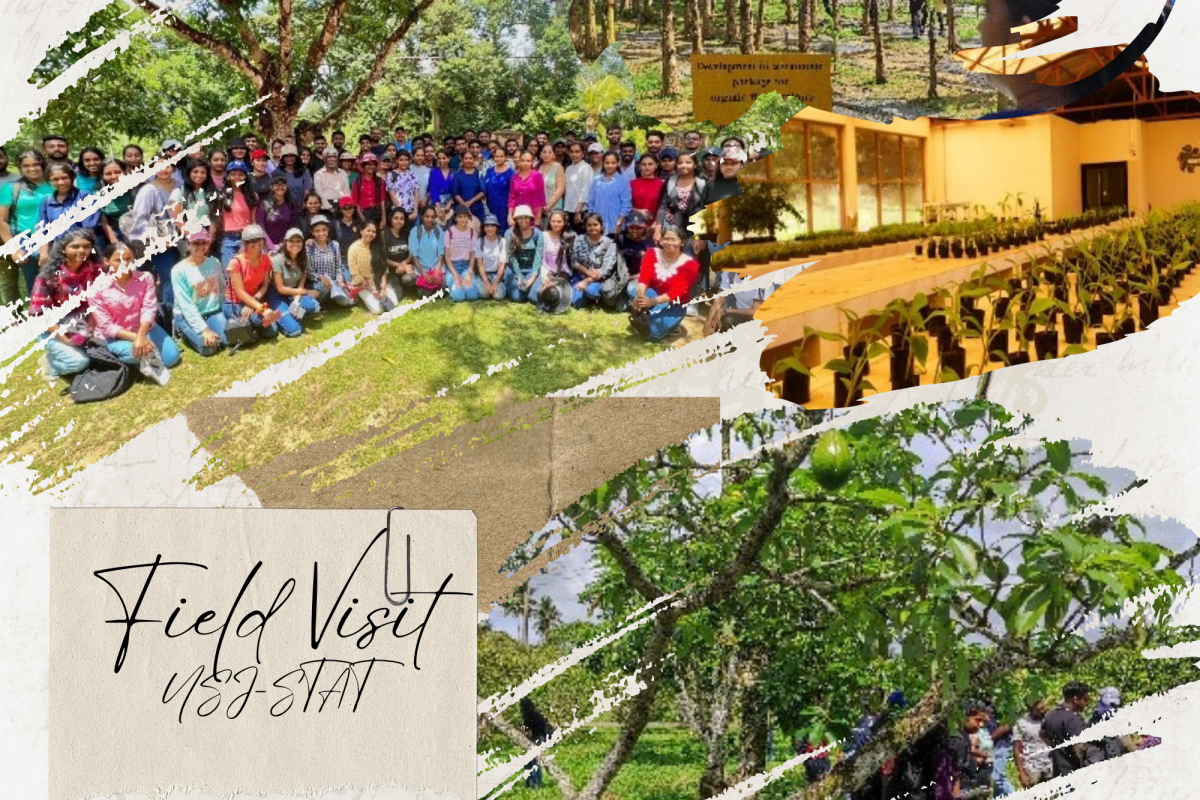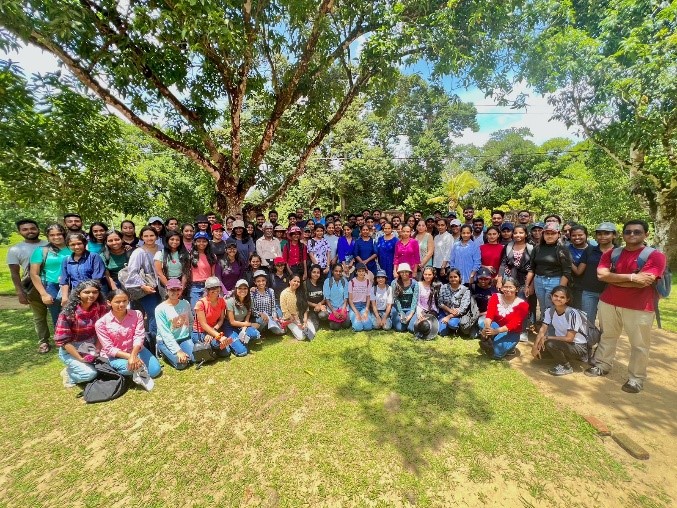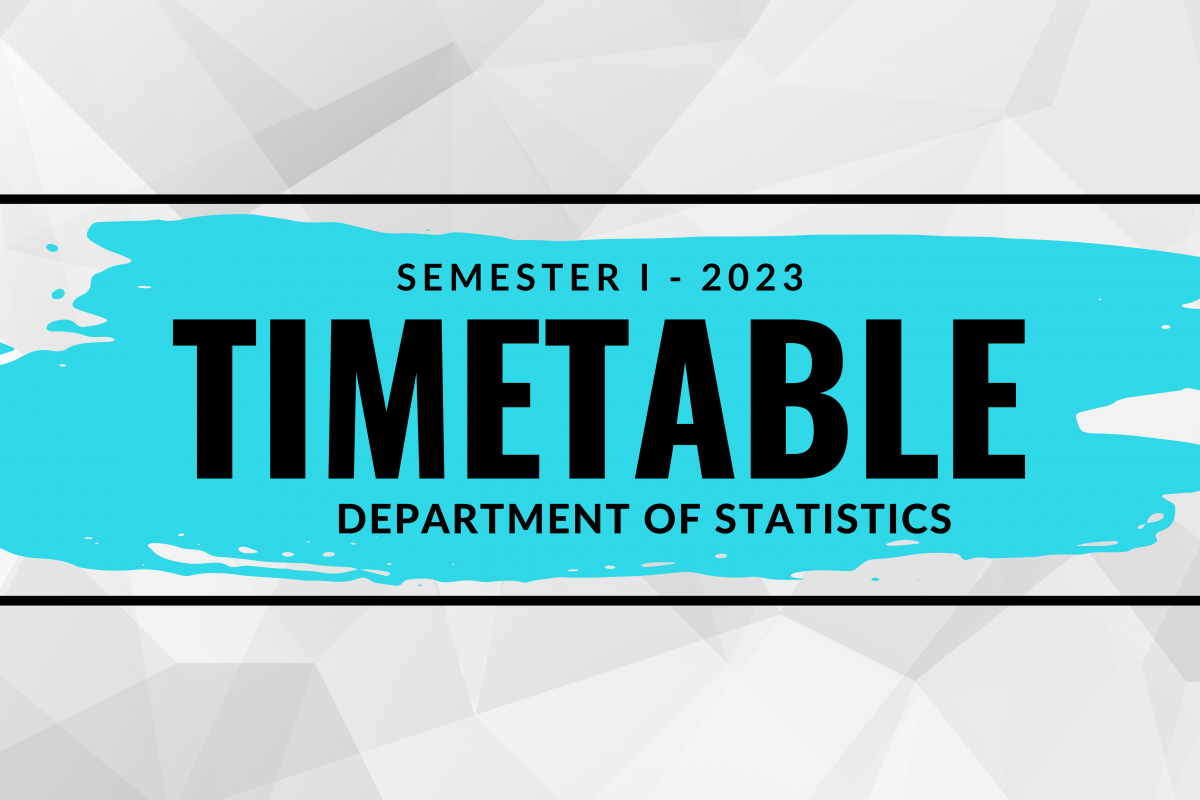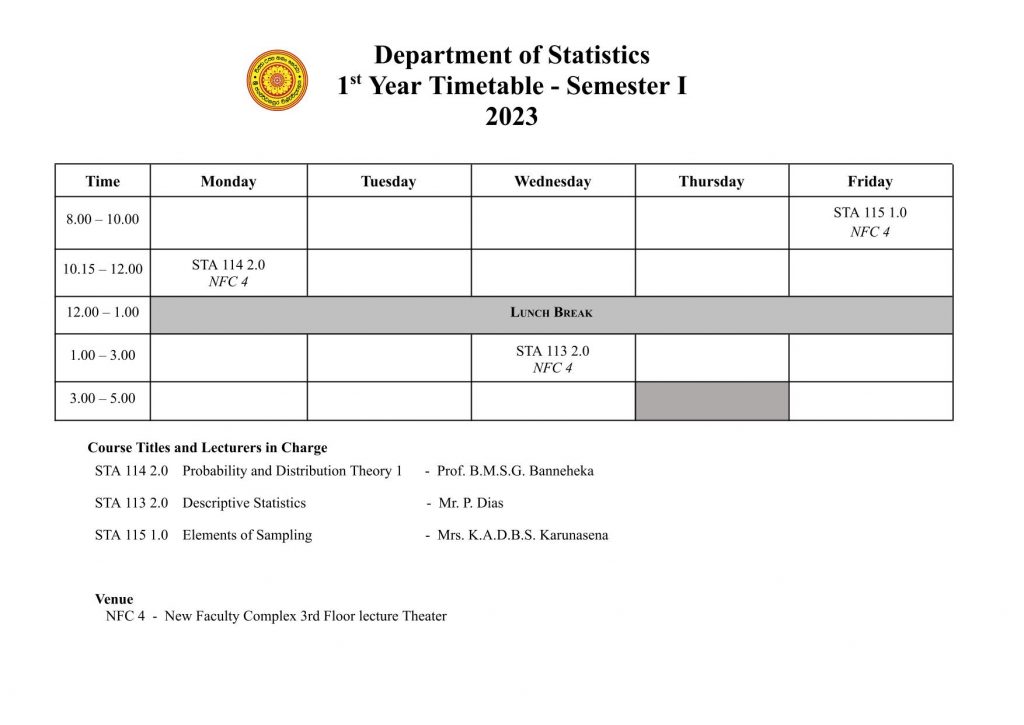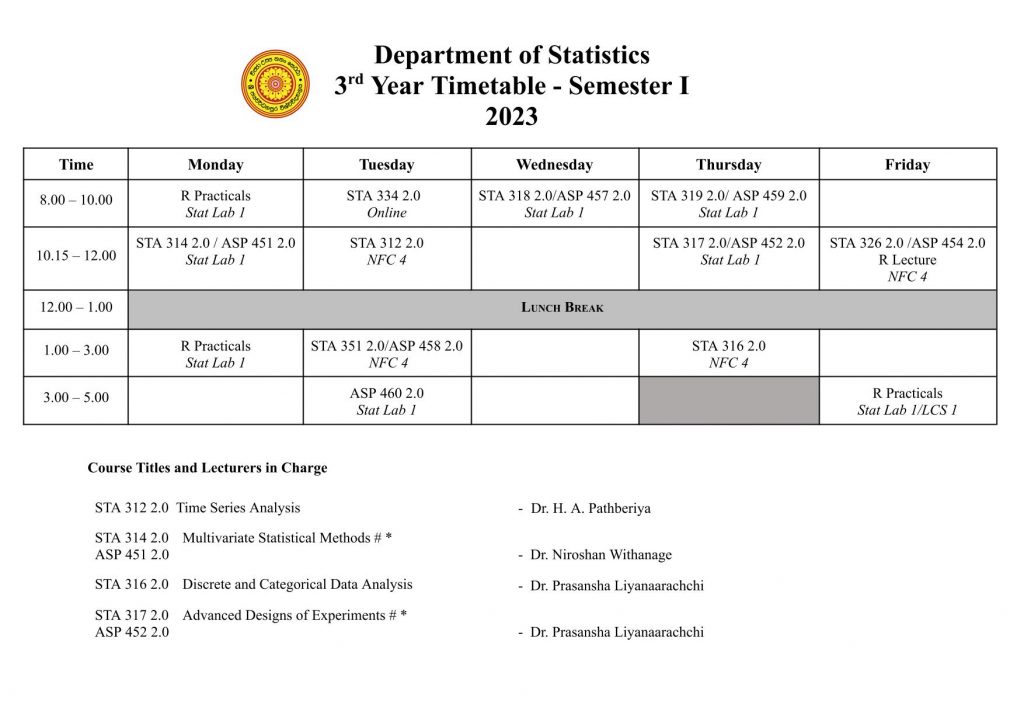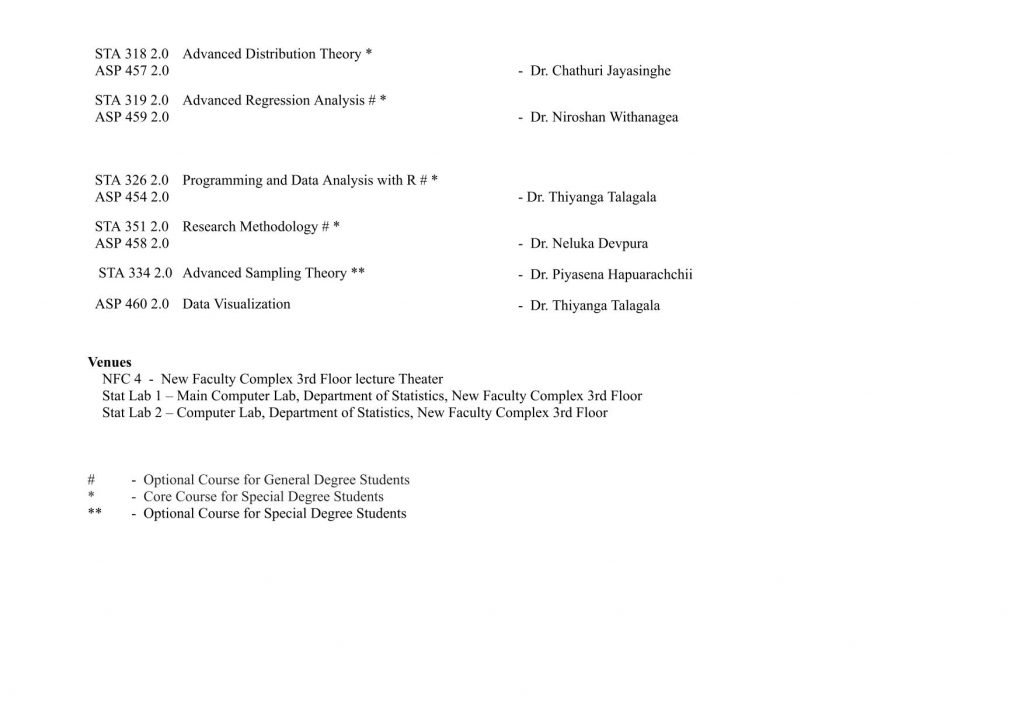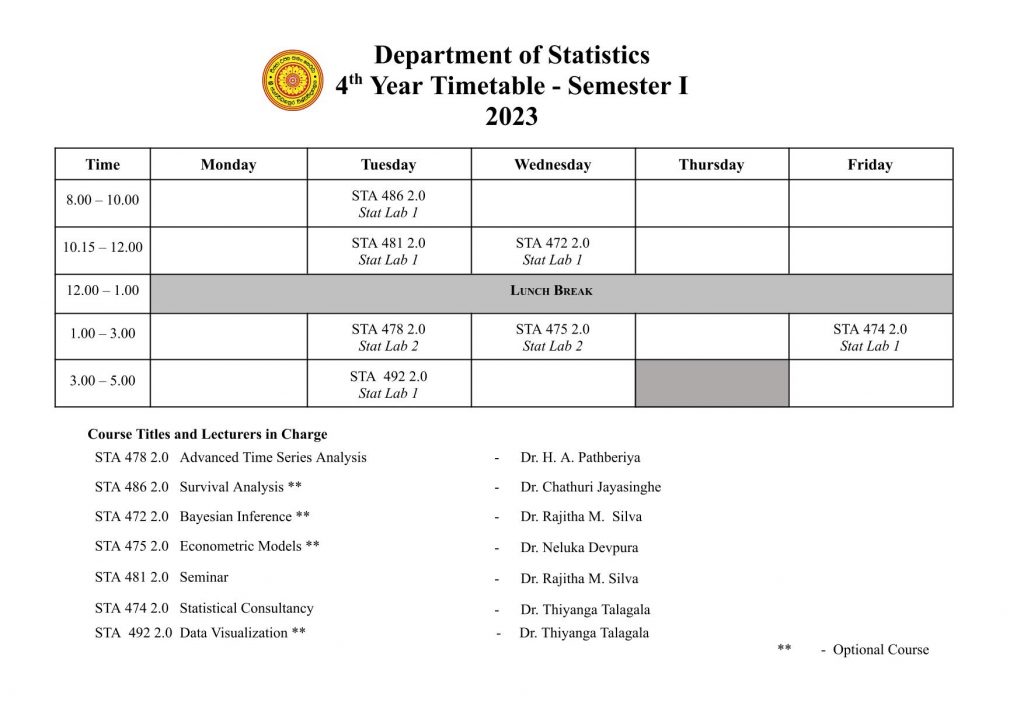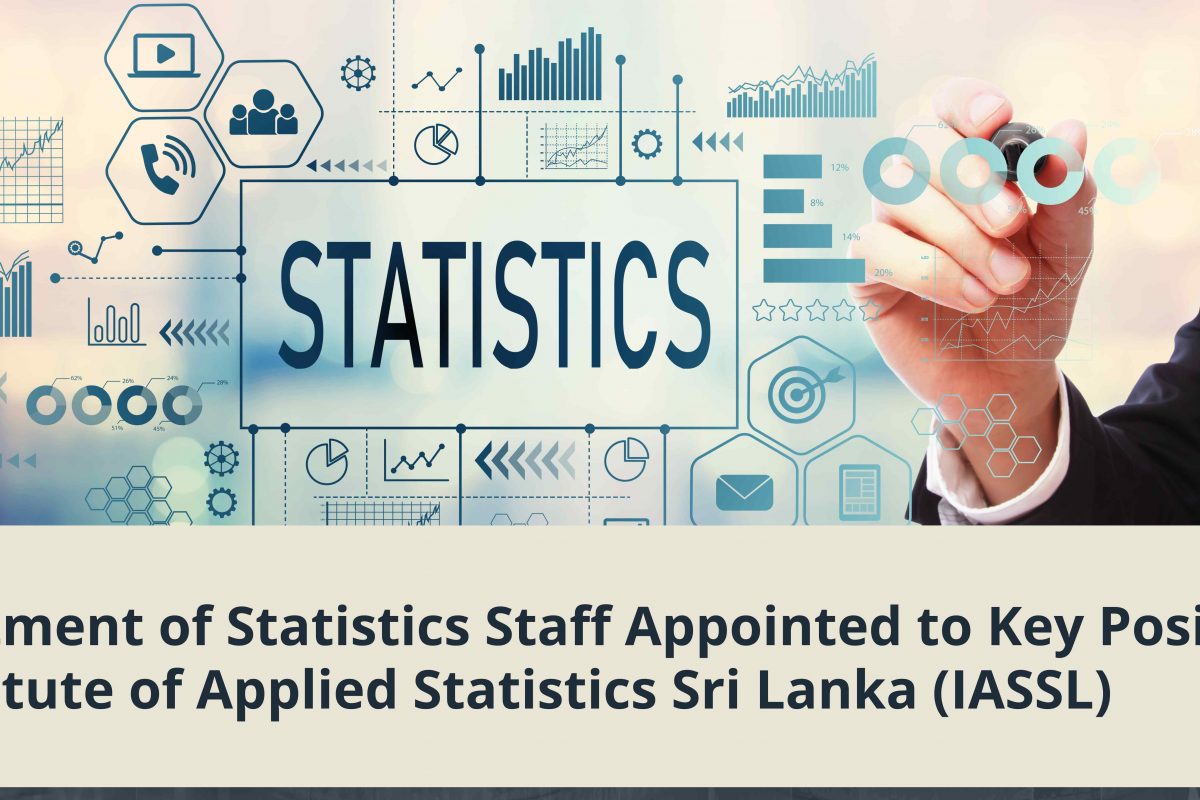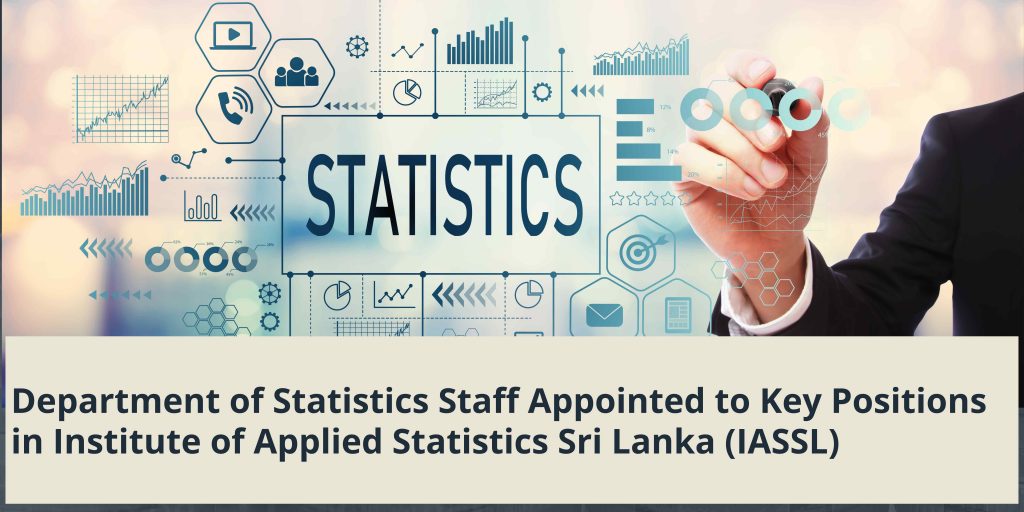4th IASSL International Conference on Statistics and Data Science
4th IASSL International Conference on Statistics and Data Science
December 28-29, 2024 Cinnamon Lakeside, Colombo, Sri Lanka
ISC 2024
Conference website: https://isc24.iassl.lk/
Contact: appstatsl@gmail.com, niroshan@sci.sjp.ac.lk
International Statistics Conference 2024 (ISC 2024) is jointly organized by the Institute of Applied Statistics, Sri Lanka (IASSL) and the Department of Statistics, University of Sri Jayewardenepura (USJ), Sri Lanka. The Simon Fraser University (SFU), Canada will be the International collaborator of the Conference.
The theme of the conference is “Unleashing the power of data: Harnessing the Synergy between Statistics and Data Science“. The Guest of Honour of the conference is the world renowned researcher Professor Rob Hyndman, Monash University, Australia. Keynote speeches will be delivered by Prof. Rob Hyndman as well as another renowned Statistician Professor Tim Swartz, SFU, Canada. Professor Ji-Hyun Lee, the President-elect 2024 of the American Statistical Association and Emeritus Professor Jay Emmerson, Yale University, USA will deliver guest speeches during the conference.
Please join us to present your latest research work and meet renowned international and local researchers.
The Conference Proceedings will be published with an ISSN and ISBN. Selected papers will be submitted to Springer Nature for a possible publication in a Scopus-indexed book series or published in Sri Lankan Journal of Applied Statistics.
Tracks of Interest:
Probability and statistical inference, Statistical modelling, Time series and forecasting, Sampling and surveys, Experimental designs and analysis, Spatial and longitudinal data analysis, Actuarial statistics, Data mining and Big data analytics, Machine Learning and AI, Data visualization, Predictive analytics, Econometric modelling, Sports analytics, Biostatistics, bioinformatics and healthcare analytics, Developments in statistical software, Ecological modelling, Financial and marketing data analytics, Manufacturing, telecommunication, transport and energy data analytics, Education and social science data analytics, Agriculture, food and environment data analytics, Operations research applications, and other relevant topics.
- Submission Deadline: May 15, 2024
- Acceptance Notification: July 15, 2024
- Camera-ready Submission: August 15, 2024
- Early-Bird Registration Closes: August 31, 2024
4th IASSL International Conference on Statistics and Data Science
December 28-29, 2024 Cinnamon Lakeside, Colombo, Sri Lanka
ISC 2024
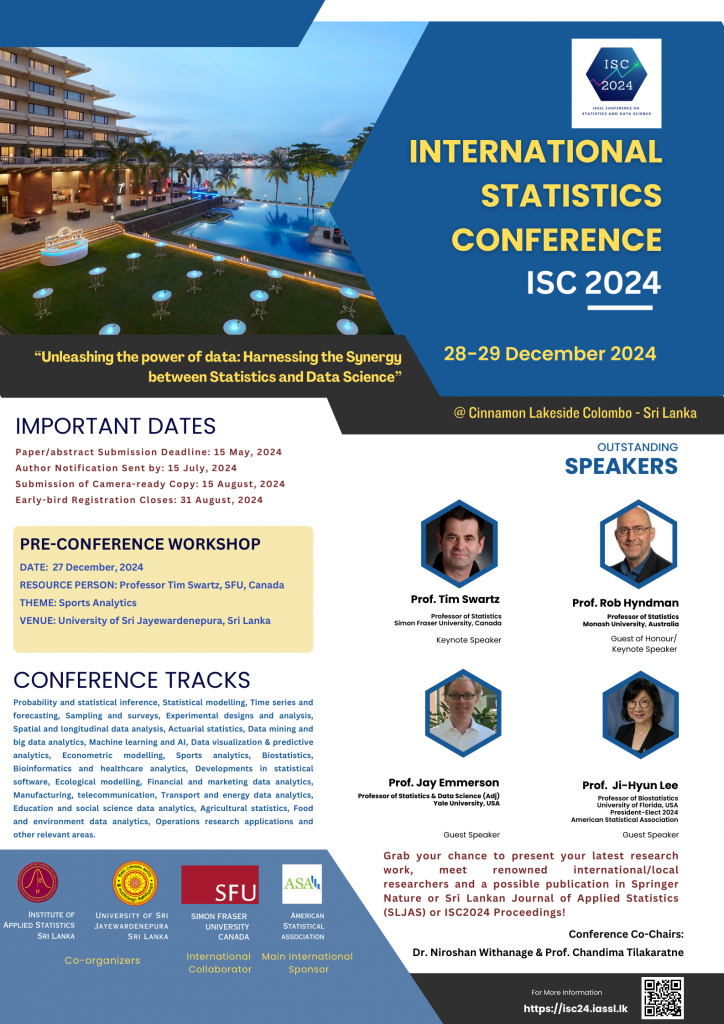
Conference website: https://isc24.iassl.lk/
Contact: appstatsl@gmail.com, niroshan@sci.sjp.ac.lk


